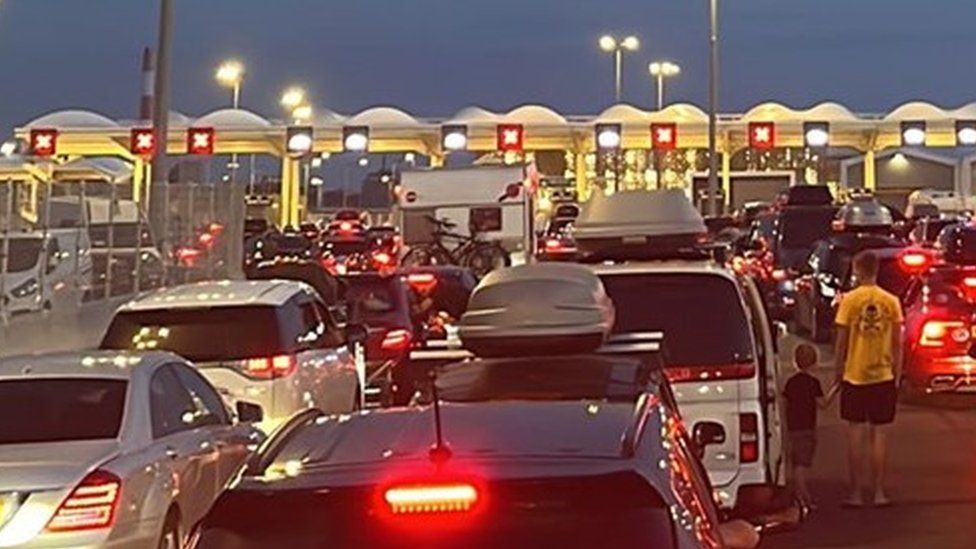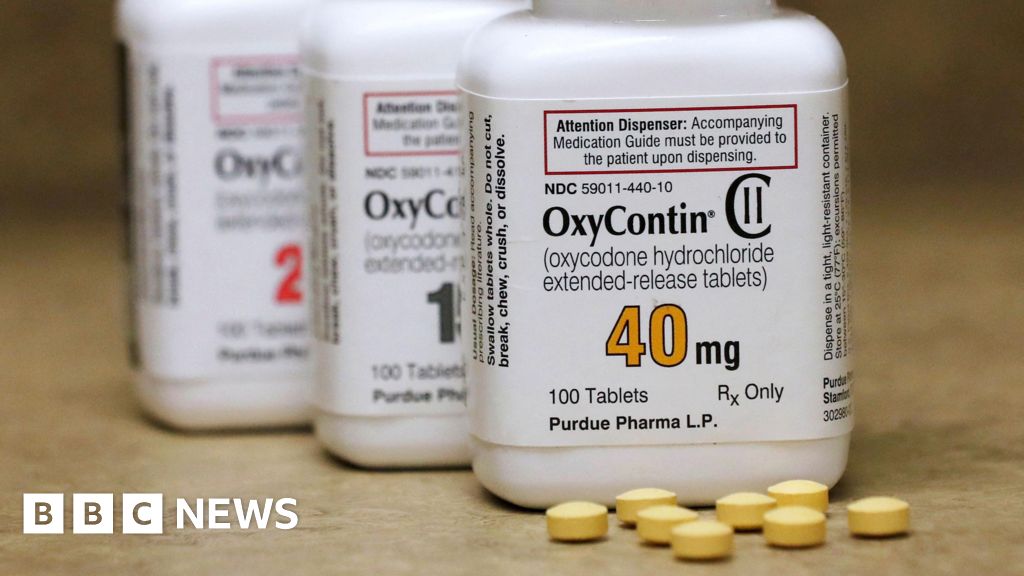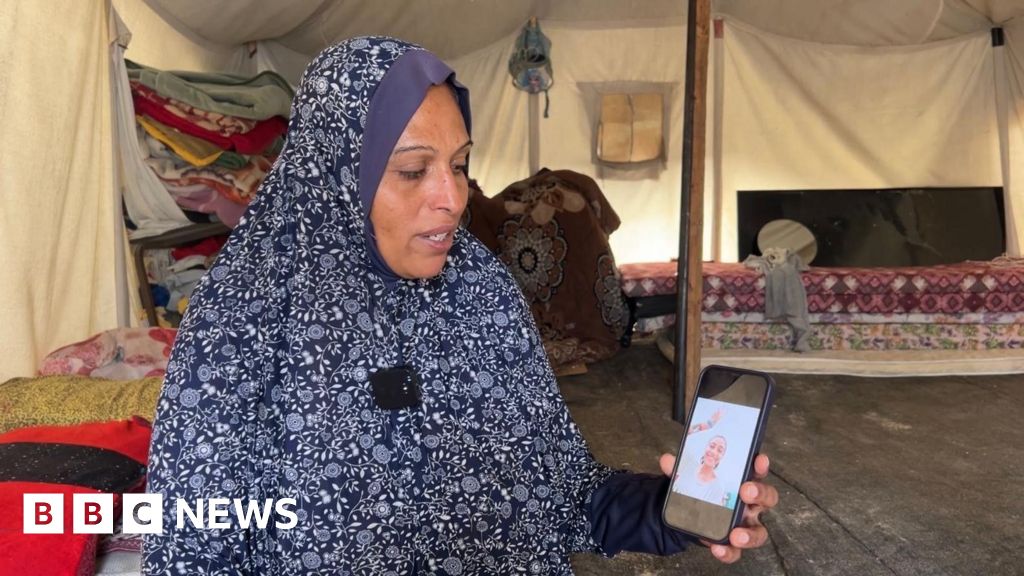ARTICLE AD BOX
By Rachel Russell
BBC News
 Image source, Josh Williams
Image source, Josh Williams
People at the port reported delays lasting nearly six hours
Travellers heading to the UK have suffered delays of up to six hours as they queued at the Port of Calais.
Ferry operators DFDS and P&O Ferries apologised for the long wait times at UK border controls on Saturday.
P&O added extra vessels were used for passengers who missed their sailing, as queues continued into the evening.
Speaking to BBC News, passenger Josh Williams said he was stuck waiting in Calais for five hours on Saturday to get a ferry back to the UK.
He shared pictures of long lines of cars filled with families trying to get back to Dover ahead of the new school year starting for many in England next week.
Earlier in the afternoon, DFDS warned on social media the queues could potentially last for six hours for people travelling from Calais. At 05:30 BST on Sunday, it said waiting times at Calais were around 90 minutes, with all boats operating on-time.
It earlier said that traffic at the ports in Dunkirk, in France, and Dover, in the UK, were "free-flowing through check-in and border controls" throughout the day.
P&O Ferries put on additional boats to "help with the passengers that have been stuck at border control".
There were similar wait times in Calais just days earlier on 24 August due to extra traffic arriving from the Eurotunnel.
Eurotunnel Le Shuttle passengers had to leave their vehicles and walk through an emergency service tunnel when the train's alarms went off.
A spokesman for Le Shuttle said at the time: "The Shuttle was brought to a controlled stop and inspected. As a precautionary measure, for their safety and comfort, we transferred the passengers on-board to another shuttle, via the service tunnel [which is there for exactly that purpose].
"We brought them to the passenger terminal building, where food and drinks were available."

 2 years ago
75
2 years ago
75








 English (US) ·
English (US) ·